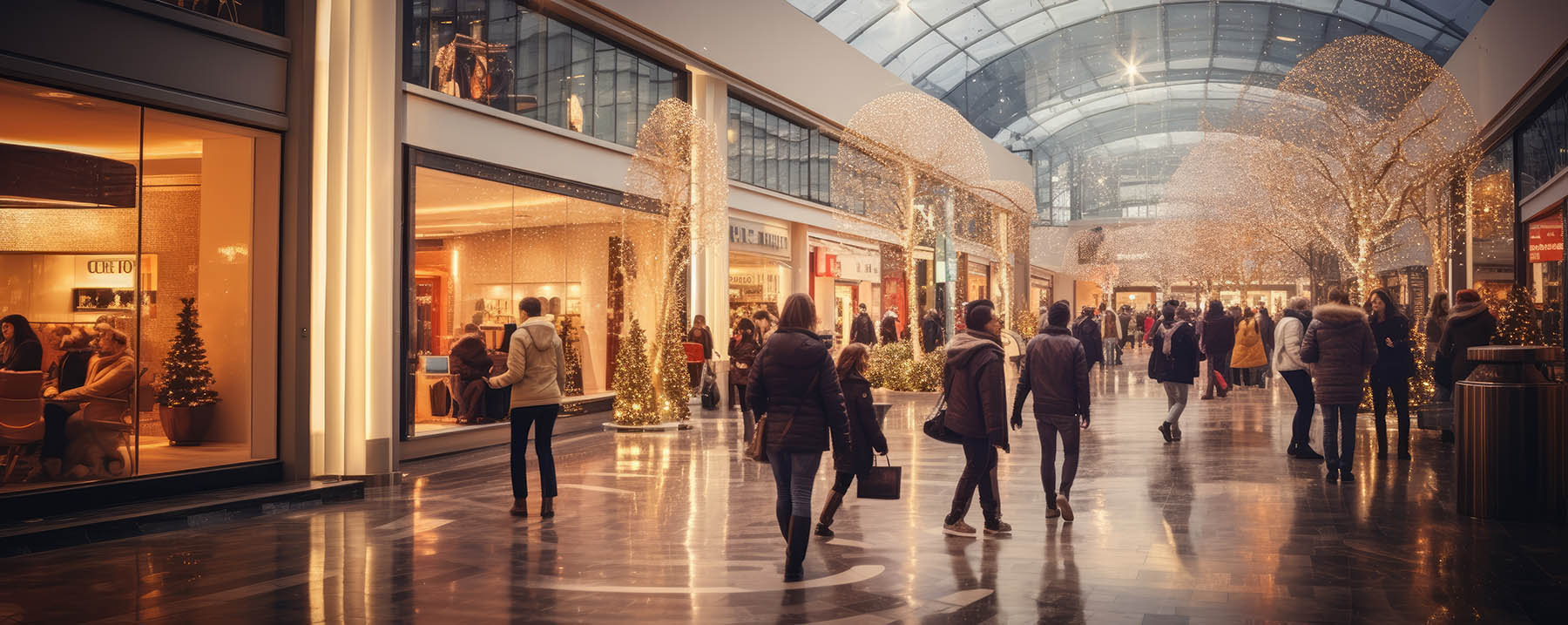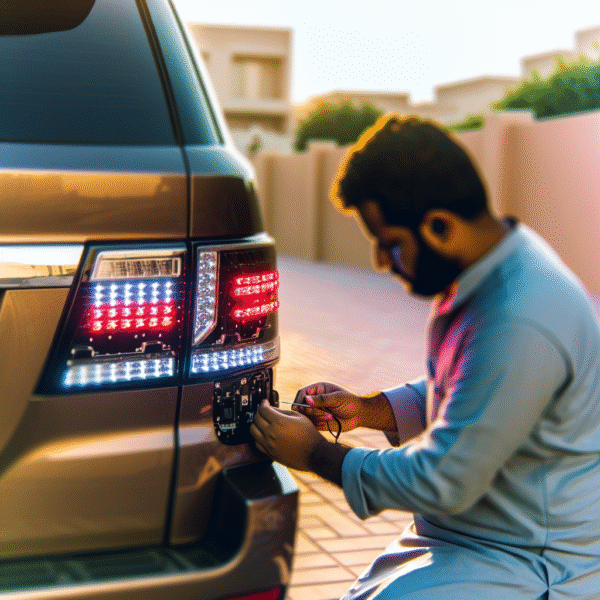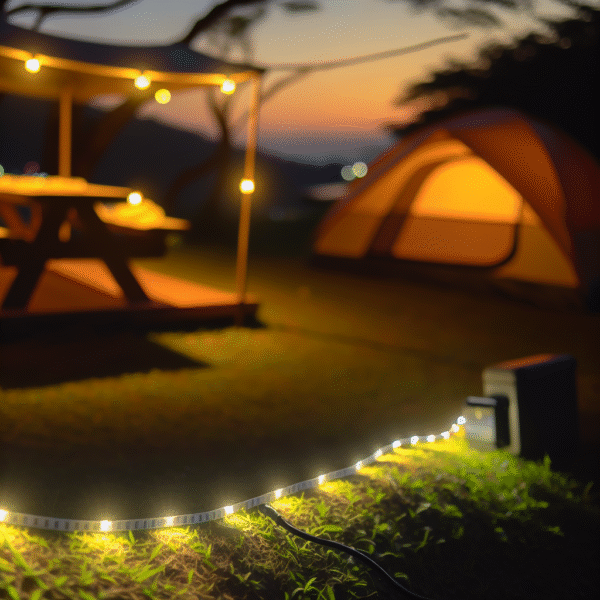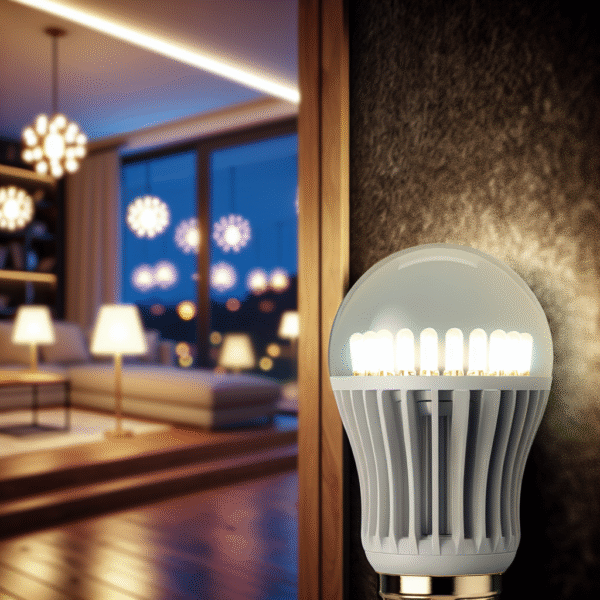Lighting plays a critical role in shaping the retail shopping experience. From drawing customers into a store to influencing their purchasing decisions, the right lighting design can significantly impact a retailer’s success. LED lighting in retail has emerged as a game-changer, offering superior efficiency, flexibility, and visual appeal compared to traditional lighting systems.
Retailers today are turning to LEDs not just for their cost-saving benefits, but also for their ability to create immersive, branded environments that enhance customer engagement and sales. This guide explores how LED lighting is transforming retail spaces and why it has become an essential component of modern store design.
How LED Lighting Enhances Product Visibility and Presentation
One of the most noticeable advantages of LED lighting in retail is its ability to enhance product visibility. Proper lighting can highlight merchandise, create focal points, and influence how customers perceive products.
Better Color Rendering for More Accurate Displays
LEDs have a high Color Rendering Index (CRI), which means they display colors more accurately compared to fluorescent or incandescent lighting. This is particularly important in industries where color perception is key, such as:
-
Fashion – Ensuring clothing and accessories appear in their true shades.
-
Jewelry – Enhancing the brilliance of gemstones and metals.
-
Cosmetics – Providing accurate tones for makeup selection.
When products look their best under proper lighting, customers are more confident in their purchasing decisions, leading to increased sales and customer satisfaction.
Customizable Lighting for Different Retail Zones
With LED lighting, retailers can control brightness and color temperature to suit different areas of the store:
-
Window Displays – Bright and focused lighting to attract foot traffic.
-
Product Shelving – Soft but well-lit displays to enhance details.
-
Checkout Counters – Well-balanced lighting for comfortable transactions.
By layering light levels, retailers can create an environment that guides customers naturally through the store, subtly encouraging them to explore and purchase more.
Creating a Welcoming and Engaging Retail Atmosphere
The ambience of a store is a defining factor in the overall shopping experience. LED lighting offers unparalleled flexibility in crafting different moods and atmospheres to match brand identity and customer expectations.
Warm vs. Cool Lighting: Setting the Mood
Different color temperatures of LED lights can evoke different emotions and influence customer behavior:
-
Warm Lighting (2700K-3500K) – Creates a cozy, inviting feel, often used in luxury boutiques, coffee shops, and furniture stores to encourage customers to relax and browse longer.
-
Cool Lighting (4000K-5000K) – Produces a clean, energetic atmosphere, ideal for electronics stores, supermarkets, and activewear retailers, where clear visibility and a sense of efficiency are essential.
-
Dynamic Lighting – Some advanced LED systems allow for adjustable color temperatures, enabling stores to transition lighting throughout the day or align with seasonal promotions.
By strategically using lighting, retailers can control the emotional response of customers, ultimately influencing how long they stay and how much they spend.
Boosting Energy Efficiency and Reducing Costs
Beyond aesthetics and functionality, LED lighting in retail provides significant energy savings and cost efficiency, making it an environmentally responsible choice.
Lower Power Consumption
LEDs use up to 80% less energy than traditional incandescent bulbs and significantly less than fluorescents. Given that many retail stores require long hours of operation, this translates into substantial reductions in electricity bills.
Longer Lifespan & Low Maintenance
LED lights last up to 50,000 hours—about 5-10 times longer than traditional bulbs. This means:
-
Fewer replacements
-
Lower maintenance costs
-
Less downtime for store re-lighting
For large retailers or malls, these savings can amount to thousands of dollars annually, making LEDs a sound long-term investment.
Sustainable and Eco-Friendly
Modern consumers value sustainability, and retailers that adopt energy-efficient LED lighting can align with eco-conscious values by:
-
Reducing carbon footprints.
-
Using recyclable LED components.
-
Cutting down on toxic waste (unlike fluorescents, LEDs don’t contain mercury).
Sustainability in retail is not just an operational improvement—it’s a brand statement that resonates with today’s shoppers.
Influencing Customer Behavior and Sales Through Lighting
Studies have shown that lighting design can directly affect customer psychology and buying habits. Retailers can leverage LEDs to maximize shopper engagement and drive sales.
Lighting Placement for Strategic Sales Boosting
Retailers can use targeted lighting techniques to subtly guide customer behavior:
-
Accent Lighting – Draws attention to premium products, limited-time offers, or high-margin items.
-
Directional Spotlights – Used in grocery stores and apparel shops to encourage shoppers to explore new collections.
-
Interactive Lighting – In smart retail environments, LEDs can change color or brightness when a customer interacts with a display, enhancing engagement.
By carefully positioning lighting, retailers can create a sense of urgency, exclusivity, or desirability, leading to higher conversions.
Case Study: The Impact of LED Lighting in Grocery Stores
Supermarkets have started adopting LED lighting to enhance the freshness and appeal of products. For example:
-
Warmer-toned LEDs are used in bakery sections to make bread and pastries look golden and inviting.
-
Cooler LEDs in meat and seafood sections preserve the natural look of fresh produce without distorting color.
-
Directional LED shelf lighting in aisles highlights promotional items and best-sellers.
These subtle but strategic lighting adjustments directly influence consumer perception and purchasing choices.
Smart LED Innovations: The Future of Retail Lighting
Technology continues to enhance LED lighting in retail, making it smarter and more interactive than ever.
LEDs with Smart Sensors
Modern LED lighting can be integrated with motion sensors and IoT systems, allowing lights to:
-
Adjust based on store occupancy.
-
Dim when areas are unoccupied, further reducing energy waste.
-
Sync with digital signage to create interactive shopping experiences.
Dynamic LED Displays for Promotions
Retailers are experimenting with programmable LED displays that:
-
Highlight flash sales in real time.
-
Change colors based on seasons or time of day.
-
Create immersive visual effects in flagship stores.
AI-Powered Adaptive Lighting
Some advanced LED systems analyze shopper movement patterns and adjust store lighting accordingly, ensuring an optimized experience for every visitor.
Why LED Lighting is Essential for Retail Success
The integration of LED lighting in retail is far more than an upgrade—it’s a strategic tool for enhancing customer experience, reducing operational costs, and boosting sales.
Why Every Retailer Should Invest in LEDs
-
Improves product visibility and enhances the perception of quality.
-
Creates a welcoming and immersive shopping environment.
-
Reduces energy costs and supports sustainability initiatives.
-
Influences customer behavior and purchasing decisions.
-
Offers future-ready solutions with smart lighting technology.
As retail competition increases, lighting will remain a key differentiator, shaping the way customers interact with stores and products. LED technology is leading this transformation, offering endless possibilities for innovation, branding, and efficiency.
Retailers who embrace LED lighting now will not only stay ahead of trends but also create lasting impressions that keep customers coming back.




